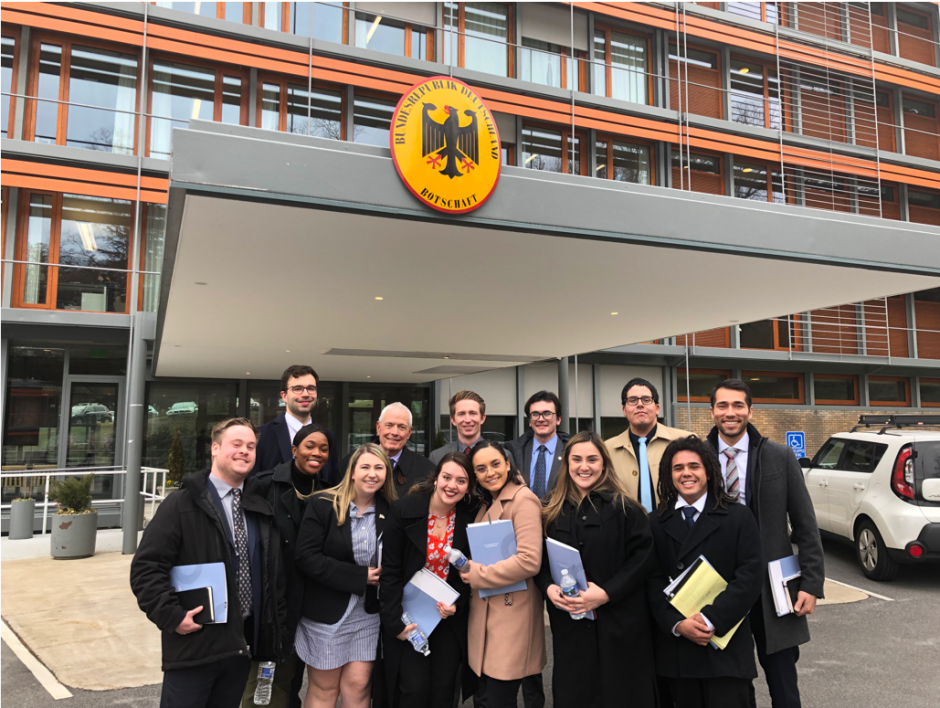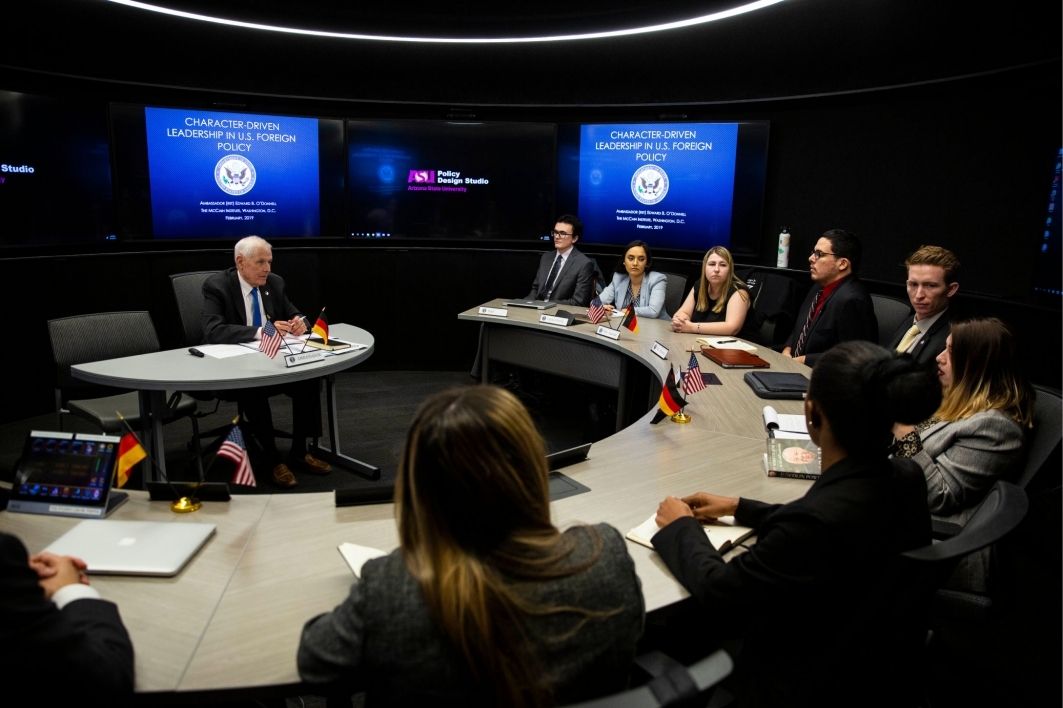Those who work in international affairs face a wide range of challenges in foreign policy decision-making, national security, international trade, climate change and human rights issues — all through a local, national and international lens.
To assist with navigating these complex challenges while forging leaders in the international affairs realm, Arizona State University’s newly launched Leadership, Diplomacy and National Security Lab partnered in the creation of the School of Politics and Global Studies’ unique online Master of Arts in international affairs and leadership.
The program is now accepting applications for the fall semester. The priority deadline to apply is July 23, with applications being reviewed on a rolling basis.
“In our volatile, uncertain, complex and ambiguous world, we need character-driven leaders with solutions,” said retired Lt. Gen. Benjamin Freakley, who is co-founder of the ASU Lab for Leadership, Diplomacy and National Security. “Our Master of Arts in international affairs and leadership will develop leaders who commit to doing the right thing, for the right reasons, in the right way.”
Many of the faculty that students will learn directly from are U.S. ambassadors, military general officers, senior leaders in U.S. government and other senior foreign policy experts. The program’s integration of how to be a “character-driven leader" helps prepares students for a successful career in international affairs.
The program is a hybrid online degree where students will benefit from two in-person intensive training weeks in Washington, D.C., at the beginning and end of the program. They will have the opportunity to visit Capitol Hill, think tanks, nongovernmental organizations and U.S. government agencies, such as the State Department, to develop their knowledge and understanding of international affairs and the U.S. government. Students will participate in leadership discussions and challenging exercises, and will visit key historical sites in the Washington area.
Lt. Gen. Freakley, retired U.S. State Department Ambassador Edward O’Donnell and Ambassador-in-Residence Michael C. Polt, who are all teaching in the program and are co-founders of the ASU Lab for Leadership, Diplomacy and National Security, offered insights into the new ASU Online degree.
Question: Why is it important for this degree to focus on character-driven leadership?
Freakley: The importance of this degree, focusing on character-driven leadership is that we see a lack of leadership globally, including in the United States. Character-driven leadership is defined as the commitment to do the right thing, in the right way for the right reasons. Our degree ensures that the student understands the key elements of this principled form of leadership and knows how to apply it to an international setting. More than ever, our country and others in the international community need leaders who are globally literate and who embrace leadership driven by character. Our societies are seriously challenged in politics, national security, in our economies and by massive global threats ranging from a deadly pandemic to the very future of our global environment. Our degree prepares students with the knowledge, training, and the tools to lead positive change in this complex and turbulent reality.
Q: Why are the Washington, D.C., weeks important and what do the students get from it?
Polt: We leverage a common, shared, in-person experience in Washington, D.C., to reinforce our curriculum and provide intensive interactive sessions to deepen the learning experience for the student. At various sites in D.C., meticulously tailored leadership training modules will explore values, ethics and character-driven leadership. Students will be on the scene at the ASU’s Barrett and O’Connor Center a few blocks from the White House to interact with top foreign policy leaders and experts and to observe firsthand the national policy debates on international issues. Speakers will share their experiences and add unique insights and perspectives on current international events and policies.
In the final week in Washington, D.C., I will guide the students’ completion of their capstone project. During the MA IAL program, students will receive mentoring, career counseling and instruction from other experts with real world experience, U.S. ambassadors and U.S. military general officers who teach in the program.
Q: How might this program, and the faculty that lead it, help advance the careers of its graduates?
O’Donnell: Our faculty and leaders will make extra efforts to mentor and help students pursue follow-on fellowships, degree programs and jobs, including after completion of the MA IAL.
For our previous interns and students in ASU undergraduate programs, we have written numerous recommendation letters and made contacts that resulted in a number of ASU graduates finding their first professional position or career, such as the U.S. foreign service, U.S. military, U.S. civil service in federal foreign affairs agencies as program managers and policy analysts, NGOs and on U.S. congressional staff.
Students in this hybrid online MA program will be offered the opportunity to connect individually with faculty to discuss foreign policy and international relations careers and to get support for the applications for jobs, fellowships and other mentoring as needed. Our alumni network already developing for ASU undergraduates will be supplemented by MA graduating cohorts which will expand the rich network of our faculty and ASU alumni and opportunities for professional growth and careers.
More Law, journalism and politics

How to watch an election
Every election night, adrenaline pumps through newsrooms across the country as journalists take the pulse of democracy. We…
Law experts, students gather to celebrate ASU Indian Legal Program
Although she's achieved much in Washington, D.C., Mikaela Bledsoe Downes’ education is bringing her closer to her intended…

ASU Law to honor Africa’s first elected female head of state with 2025 O’Connor Justice Prize
Nobel Peace Prize laureate Ellen Johnson Sirleaf, the first democratically elected female head of state in Africa, has been named…



